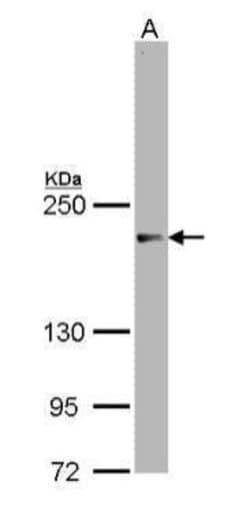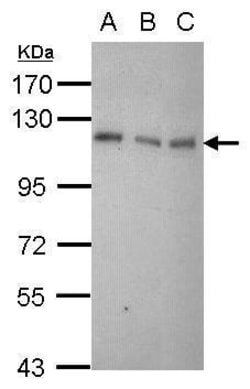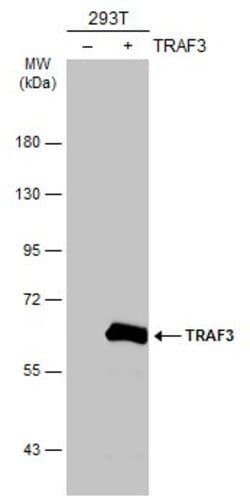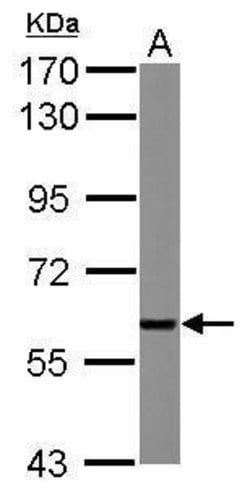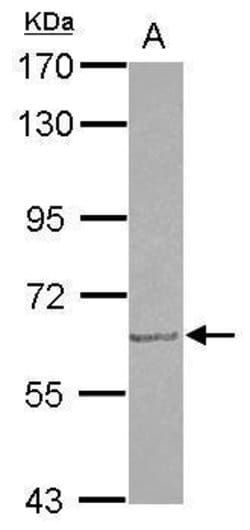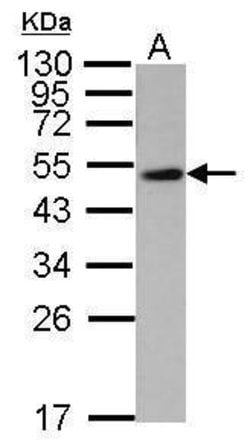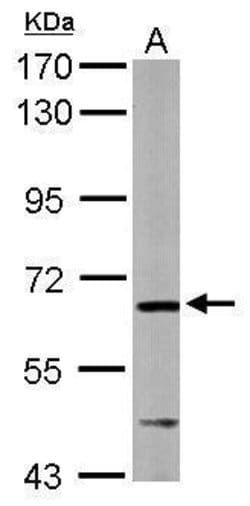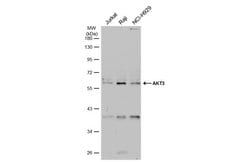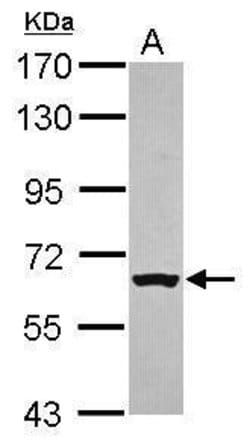AIF Polyclonal Antibody, Invitrogen™
Manufacturer: Thermo Scientific
Select a Size
| Pack Size | SKU | Availability | Price |
|---|---|---|---|
| Each of 1 | PIPA529693-Each-of-1 | In Stock | ₹ 51,397.50 |
PIPA529693 - Each of 1
In Stock
Quantity
1
Base Price: ₹ 51,397.50
GST (18%): ₹ 9,251.55
Total Price: ₹ 60,649.05
Antigen
AIF
Classification
Polyclonal
Conjugate
Unconjugated
Gene
AIFM1
Gene Alias
AG1; AGR1; Aif; AIFM1; AIFsh2; apoptosis inducing factor mitochondria associated 1; apoptosis inducing factor, mitochondria associated 1; apoptosis-inducing factor 1, mitochondrial; apoptosis-inducing factor, mitochondrion-associated 1; apoptosis-inducing factor, mitochondrion-associated, 1; CMT2D; CMTX4; COWCK; COXPD6; DFNX5; ER protein 18; ER protein 19; ERP18; ERP19; hAG-1; harlequin; Hq; hTLP19; MGC111425; mitochondrial apoptosis-inducing factor 1; NADMR; NAMSD; pcd8; PDCD8; PDIA16; programmed cell death 8 (apoptosis-inducing factor); programmed cell death protein 8; RP3-438D16.2; striatal apoptosis-inducing factor; testicular secretory protein Li 4; TLP19; UNQ713/PRO1376
Host Species
Rabbit
Purification Method
Antigen affinity chromatography
Regulatory Status
RUO
Gene ID (Entrez)
26926, 83533, 9131
Content And Storage
Store at 4°C short term. For long term storage, store at -20°C, avoiding freeze/thaw cycles.
Form
Liquid
Applications
Immunocytochemistry, Immunohistochemistry (Paraffin), Western Blot
Concentration
1 mg/mL
Formulation
0.1M tris glycine with 10% glycerol and 0.01% thimerosal; pH 7
Gene Accession No.
O95831, Q9JM53, Q9Z0X1
Gene Symbols
AIFM1
Immunogen
Recombinant fragment corresponding to a region within amino acids 82 and 330 of Human AIF
Quantity
100 μL
Primary or Secondary
Primary
Target Species
Human, Mouse, Rat
Product Type
Antibody
Isotype
IgG
Description
- Recommended positive controls: 293T, A431, H1299, HeLa, HepG2, Molt-4, Raji, mouse liver, rat liver
- Predicted reactivity: Mouse (95%), Rat (96%), Zebrafish (80%), Pig (97%), Chicken (84%), Rhesus Monkey (99%), Bovine (95%)
- Store product as a concentrated solution
- Centrifuge briefly prior to opening the vial
- Apoptosis Inducing Factor (AIF) causes chromatin condensation and DNA fragmentation
- AIF was recently identified, and cloned
- Apoptosis is characterized by several morphological nuclear changes including chromatin condensation and nuclear fragmentation
- These changes are triggered by the activation of members of caspase family, caspase activated DNase, and several novel proteins
- Like the critical molecules, cytochrome c and caspase-9, in apoptosis, AIF localizes in mitochondria
- AIF translocates to the nucleus when apoptosis is induced and induces mitochondria to release the apoptogenic proteins cytochrome c and caspase-9
- AIF induces chromatin condensation and large scale DNA fragmentation, which are the hallmarks of apoptosis, of the isolated nucleus and the nucleus in live cells by microinjection and apoptosis stimuli
- AIF is highly conserved between human and mouse and widely expressed
- Mutations in the AIF gene cause combined oxidative phosphorylation deficiency 6, which results in a severe mitochondrial encephalomyopathy
- Alternative splicing results in multiple transcript variants of AIF and a related pseudogene has been identified on chromosome 10.


